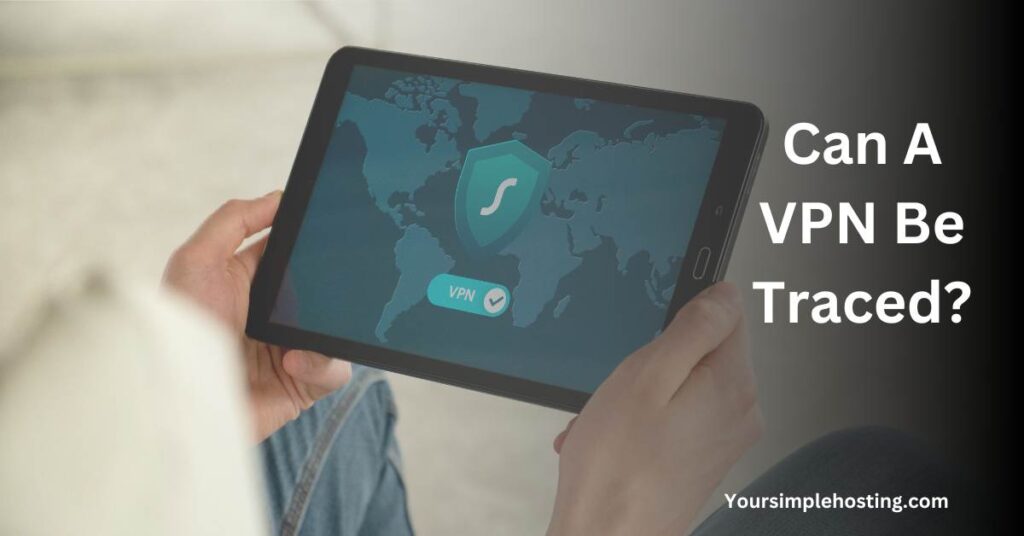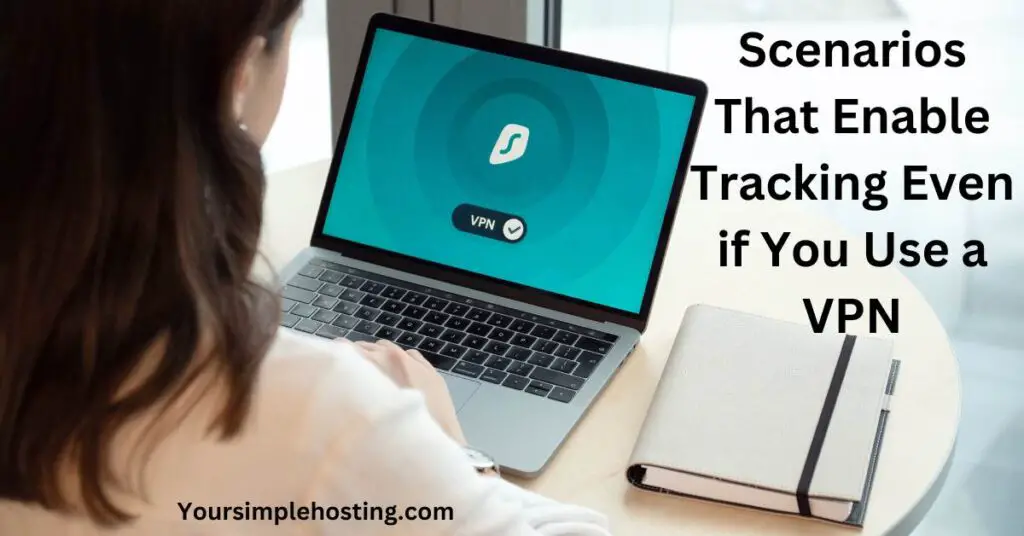While Virtual Private Networks offer high levels of security and allow you to browse the internet anonymously, they aren’t untraceable either.
VPN traffic is encrypted, so your data can not be tracked in real-time. However, there are several ways your activity through a VPN connection can be traced using log collection, even if your provider ensures encrypted traffic. For example, your data can be traced by the VPN provider, internet provider, employer, or government authorities.
Read on to learn when your VPN IP addresses and VPN internet connection can be traced and who can track this information.

What Are VPNs? Can a VPN Be Traced, and Who Can Trace Them?
A VPN can allow online users to get around internet traffic censoring measures like geo-blocking and geolocation. Additionally, users can safeguard their communications from data profiling or MitM (Man in the Middle) attacks. To learn more about MitM attacks, you can read my article What is a Man-in-the-Middle Attack?
Since the transmitted data is encrypted using a VPN, your data can not be traced in real-time. However, the user’s information can be visible at the receiving endpoint, which enables tracing VPN.
Your VPN activity can be traced by several entities, including:
- Your VPN provider
- Your internet provider
- Your employer
- The authorities
How Your Internet Service Provider Tracks VPN Activity
In most cases, your ISP will only have access to some information about your VPN activity. For example, they can determine that you’re using a VPN, learn which VPN server you’re connected to, and the VPN IP address linked to your browser.
ISPs can access online databases where IP addresses are linked to specific VPN services. They can also identify different types of VPNs based on connection logs and ports used for making a connection.
Only rarely will your ISP access your browsing history, presence on unencrypted sites, and the data you download or upload through a VPN.
Scenarios That Enable Tracking Even if You Use a VPN
Now, let’s look at some scenarios where your activity can be traced through a VPN.

Logging Into Your Online Accounts While Using a VPN
The most likely way of tracing your activity through a VPN service is if you’re logged into your online accounts.
For example, if you log into your Google account through a VPN, Google will now have access to your log information. This includes the type of VPN you use and everything you can do while using this service.
Social media platforms track your online activity, with or without a VPN. For example, let’s say you log into your Facebook account through a VPN. While still logged into Facebook, you visit other sites which contain Meta trackers and cookies.
Meta trackers and cookies will track all your activities on these sites if the trackers are enabled.
Using Free VPN Services
While many VPN providers offer free services, they typically do it for marketing purposes. They want you to buy their product and entice you, providing you with free services or trials.
However, these free services will not protect your online privacy. Their only purpose is to collect information about your online activities and use this to better their product marketing.
Using a VPN that offers no protection is almost worse than not using VPN at all. At least without a VPN, your information is only stored by the websites you frequent.
Some providers use free services as an alternative revenue stream. They market it to companies who want to track the online behavior of their target customer group. These companies often use multiple VPN servers and collect data about all their users.
If you’re using free VPNs, chances are your provider is sending over your data to companies who will use it to target their advertisements and increase their bottom line. With paid VPNs, this will rarely happen, as your provider has enough revenue from protecting its clients.
Hacked VPN Connections
The primary source of DNS leaks is a hacked VPN connection. If your VPN provider is hacked, your data collection can be stolen and used for illegal purposes. In addition, anyone who obtains your VPN service logs will also gain access to the sites you’ve visited and all your online activity.
Hacking VPN users doesn’t mean the hackers can obtain sensitive information the users stored on secure sites. While hackers can see the websites you visit during VPN usage, if the logs of these sites are fully encrypted, your information will remain safe.
Revealing Your Information Online While Using a VPN
If you voluntarily reveal sensitive information online, it won’t matter if you’re using a VPN.
For example, if you publicly disclose your address, banking information, and other sensitive data online, all of this will be available to everyone with access to the internet.
Using a VPN can only protect your personal information if you keep it private and disclose it only to trusted entities.
Illegal Activities
If you’re using a VPN connection for illegal online activities, the police can obtain a record of your VPN traffic.
This requires a legal process in which a warrant is issued to identify servers through which you logged on to conduct criminal activity. Once these logs are obtained, you can be prosecuted for your crimes.
Your log records will also be collected if you’re using a VPN for activities that violate civil rights. For example, if you’re sharing copyrighted material, and the copyright holder learns this, they can demand the disclosure of the server logs used to share their intellectual property.
Apart from seeking monetary compensation, illicit VPN activity can be used to prevent you from enjoying the benefits of these activities.
If you work in a field where sensitive information is being handled, your employer will likely track your online activity even if you use a VPN.
If your employer suspects you’re leaking or mishandling information, they will collect your records from the VPN company. They will use this to compile evidence of your activities and take the necessary steps against you.
Can VPN Providers Hide Email Trails?
Email headers often contain your IP address. Because headers are generated independently of your provider, they will have your actual IP address and not the one generated by a virtual private network.
Consequently, a VPN can’t hide the trail of your email traffic. In theory, anyone who receives an email from you can access your IP address. However, most email servers also make their logs challenging to track, so you will be somewhat protected.
Conclusion
Even using a secure VPN, your online activities will be visible to several entities – from the VPN provider, your ISP, your employer, and the government. However, if you aren’t careful enough, your information and online activity will be traced by others too.
If you’re logged into any of your online accounts on VPN, your account provider will also be able to track your online activity. Your data will not be protected if you’ve used a free or unsafe VPN service either.
Last but not least, a VPN server will rarely conceal your email activity. Since email accounts aren’t linked to VPN IP addresses, your actual IP address will be visible to anyone who receives your emails.

Leave a Reply